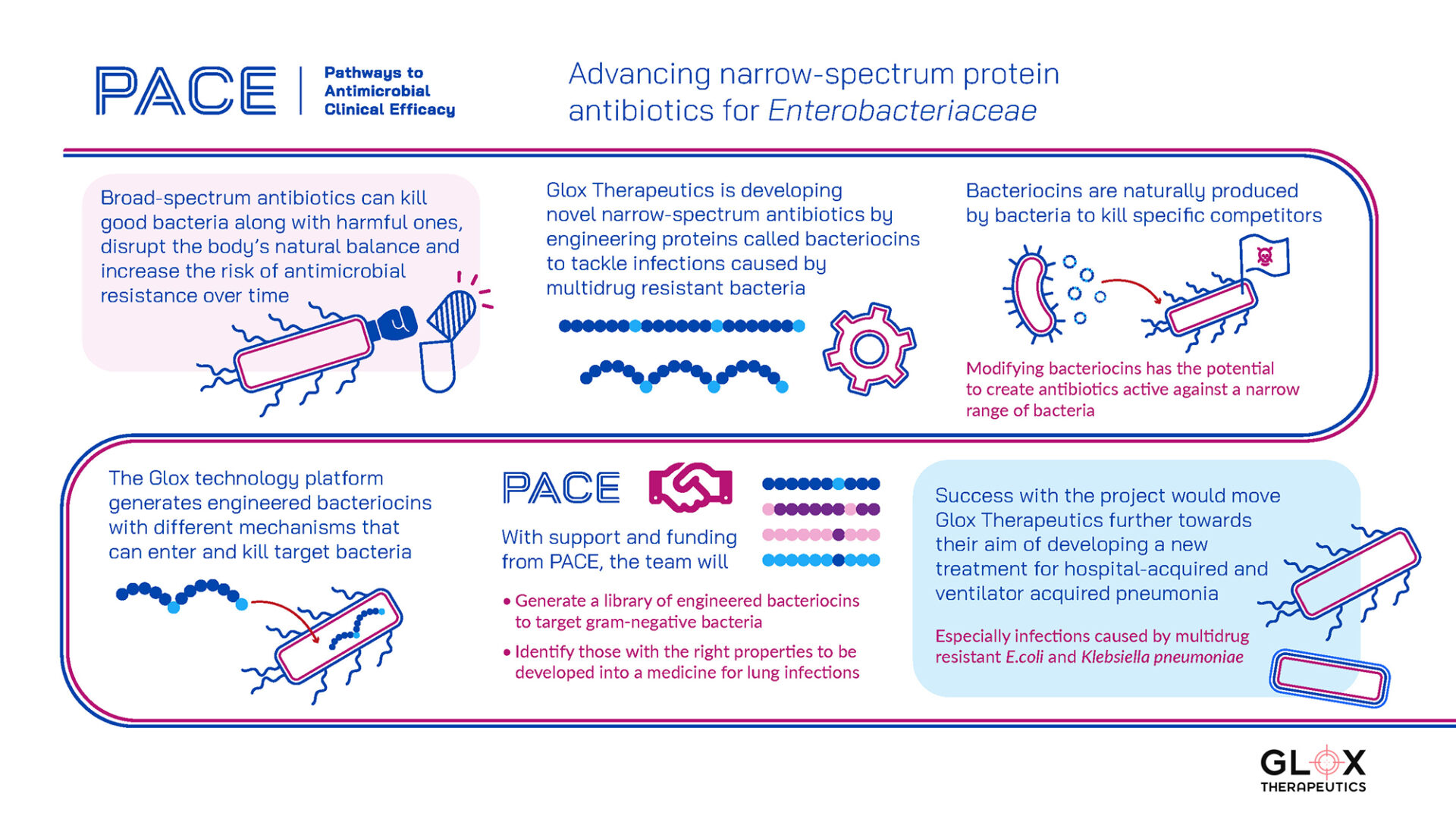
Advancing narrow-spectrum protein antibiotics for Enterobacteriaceae
Project title: Precision antibiotics for Enterobacteriaceae
Broad-spectrum antibiotics are the mainstay of treatments for bacterial infections, but they can cause collateral damage to the natural microbiome, increasing the risk of developing secondary infections and compounding the problem of antimicrobial resistance.
Glox Therapeutics is tackling this challenge by investigating proteins called bacteriocins, which are naturally released by bacteria when competing with closely related bacteria for space and nutrients and so are inherently very targeted in their action. The team has already developed molecular engineering methods that enable the activity of multiple bacteriocins to be brought together in a single molecule, increasing target pathogen coverage and reducing the probability of resistance.
With the funding and support from PACE, these engineering strategies will be exploited in the development of bacteriocins that target members of the family Enterobacteriaceae such as E. coli and Klebsiella pneumoniae, which are often responsible for infections in hospital settings. The team will target carbapenem-resistant and multi-drug-resistant isolates, for which treatment options are currently very limited.
The approach developed by Glox Therapeutics offers particular promise for treating serious pneumonia caused by members of the Enterobacteriaceae family, specifically E. coli and Klebsiella pneumoniae. Moreover, because the therapy is inherently narrow spectrum, it will help maintain the natural protection provided by the host’s microbiome, so helping to lower the risk of secondary infections such as sepsis and urinary tract infections that are a common occurrence in the hospital environment.

Company Summary
Glox Therapeutics is developing precision antibiotics to combat antimicrobial resistance. Their goal is to create potent, species-specific antibiotics that, unlike conventional antibiotics, do not harm the host microbiome. They are producing engineered bacteriocins from our proprietary platform technologies to target Gram-negative pathogens.
PACE is supporting Glox Therapeutics with a project in ‘Precision antibiotics for Enterobacteriaceae‘, advanced narrow-spectrum protein antibiotics for ‘Enterobactericeae’.
